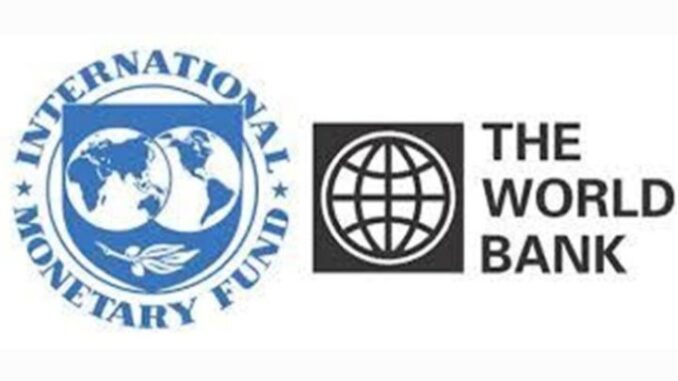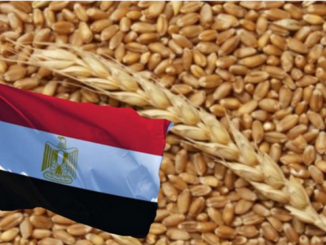
Egypt’s ongoing sovereign debt crisis has compromised its ability to protect struggling domestic banks in the event of a crisis.
If Egypt’s Sisi is not able to implement reforms soon, he may be facing an avalanche of private defaults which the state will not be able to arrest, states Maged Mandour, a political analyst, in a recent piece published on Fair Observer.
On the 17th of May, the credit rating agency Fitch downgraded the Issuer Default Ratings (IDRs) and Viability Ratings (VRs) of four major Egyptian banks to “B” from “B+”, Mandour adds, continuing:
IDRs are used to measure the risk of default of the entities in question, while VRs are used to evaluate the future viability of a specific company. The downgraded banks include the National Bank of Egypt, Banque Misr, Banque Du Caire, and Commercial International Bank, all systemically important banks for Egypt.
The reasons cited for the downgrade include pressure on the banking system from the sovereign debt crisis (since Egyptian banks are some of the largest holders of Egyptian sovereign debt), constraints on the availability of hard currency, expected negative impact on capitalization due to expected depreciation of the pound, and the perceived inability of the Egyptian government to shore up the banking system in case of a crisis.
This downgrade in the credit rating comes as the net foreign asset deficit of the Egyptian banking sector hit a new high of 24.5 billion US dollars as of March, compared to $23 billion in February, showing the increased vulnerability of the sector.
The vulnerability is compounded by the weakness of the national foreign currency reserves, which stood at a meager $32.4 billion as of March.
These reserves are the main resource that the government can call upon, not only to meet its debt obligations, but to rescue Egyptian banks if they fail to meet their obligations in foreign currency.
The situation is further compounded by another vulnerability, which was stated to be a factor in the downgrade, although Fitch alluded to in the report. This would be the $11 billion worth of treasury bills held by non-residents, what is commonly known as “hot money.”
If a mass exodus of these investments took place, similar to the $20 billion exodus that took place in March 2022 due to the war in Ukraine, precipitating the current debt crisis, the consequences would be catastrophic. Indeed, an outflow of such a magnitude would push the banking sector to the edge of the abyss, a crisis which the regime would be almost powerless to stop.
The downgrade also comes at a moment when the debt crisis seems to be deepening, with pressure from President Abdel Fattah el-Sisi’s allies mounting and no financial aid appearing in sight. For example, the regime’s Gulf allies seem to have agreed on a unified position: before they will provide aid, Sisi is expected to comply with three main conditions.
First is the devaluation of the Egyptian pound, which is a logical ask considering that the Gulf is expected to be the primary buyer of regime-held assets and a devaluation would make these assets cheaper. Second is a change in personnel for those responsible for managing the Egyptian economy. Considering that the management of the economy is highly centralized and militarized, this is a direct attack on the regime’s economic policy and even on the presidency.
Third, and most important, is the demilitarization of the economy, a prospect that seems to be far-fetched at the moment, with no concrete steps taking place since the crisis began. The consequences of the sluggish rate of reform have been all too real.
Since the government announced the sale of 32 state-owned companies, the first in the fire sale privatization program, not one significant sale has been concluded, with the Gulf demanding a demilitarization of the economy before buying into state-owned assets. The slow pace of the privatization program is a result of the lack of reforms.
The regime, however, seems to be playing a high-stakes game of chicken, hoping that the “too big to fail” logic would prevail in the event of a crisis and that the international community would intervene to stave off a complete collapse. This logic was clearly reflected in the regime budget for next year, which assumes that the main source of public revenues will come from loans, at an estimated share of 49.2% of the budget. In comparison, taxes constitute 35.2% of the state budget.
This logic presumes the continued availability of external sources of financing, despite the regime’s current difficulties in soliciting international capital inflows. It comes at a time when Egypt has been ranked the country with the third highest risk of default after Ghana and Ukraine, according to Bloomberg. Continued access to international capital inflows is wishful thinking under these conditions.
For this reason, the regime is not only facing a sovereign debt crisis, but a banking crisis as well. The exposure is stemming from obligations in foreign currencies, placing the regime in a uniquely vulnerable position. Indeed, if the major banks are unable to meet their obligations, the state will not be able to step in to shore up the banks.
Simply put, the regime does not have enough hard currency reserves in its coffers to do that, and its access to quick liquidity is limited. This could potentially be catastrophic for Egyptian banks, leading to possible collapse of the sector or to its being cut off from international financial markets—which for a peripheral economy like Egypt would be catastrophic and would require immediate international intervention.
Indeed, as long as the sovereign debt crisis remains unresolved, this scenario continues to become more likely, threatening catastrophic consequences for the Egyptian economy and the mass of the citizenry.
Barring the very unlikely setup of a currency swap line with the US Federal Reserve, there is no other avenue other than another rescue package from the International Monetary Fund, with a much larger value, and even more stringent conditions that the regime will most likely attempt to circumvent.



